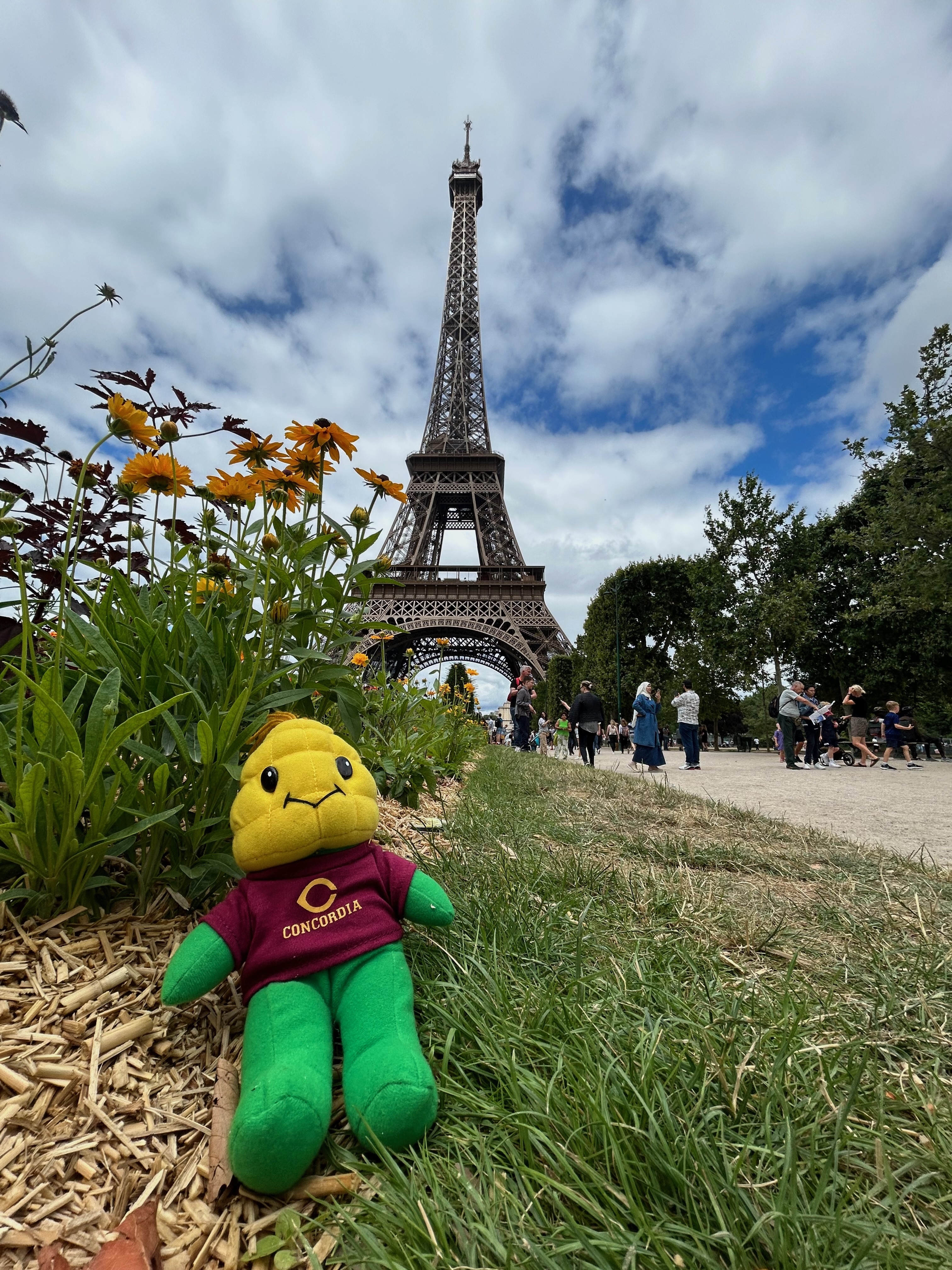When I chose to come to Concordia for college, I didn’t know the impact it would have on my life. I don’t want to be a clique… but what everyone says is true, “these 4 years have really flown by.” When thinking about life after college, I have been thinking a lot recently about how my experiences at Concordia have helped prepare me for the future.
Concordia has a goal for its liberal arts education called BREW – Becoming Responsibly Engaged in the World. My liberal arts education has prepared me to not only be a curious thinker and the importance of mentor and classmate relationships, but Concordia specifically emphasizes experimental learning that allows students to connect the concepts they are learning outside the classroom as well. This has helped me to build critical thinking skills and to realize the importance of community outreach and gaining multiple perspectives.
When I read about Concordia’s 5 goals for liberal learning, I thought of research. Research is committing to learn for the rest of your life. It’s a love for learning and a drive to follow whatever research questions interest you. Research is continuing to build on your foundation of knowledge and research techniques (i.e. research process, scientific writing, safe laboratory practices, etc.). Research is being able to communicate your findings so that anyone can understand. Wanting to go into a future career in research, I’ll be taking what I have learned at Concordia and applying it to all aspects of my life.
This neurochemistry course has been one of my favorites at Concordia because of its unique structure (it also helps that this is basically the theory behind what I want to do for the rest of my life). During this class, I have learned how to take real-world issues, read current literature, and discuss the complex problems in their mechanisms, treatment, and public perceptions with my classmates. Each week when we read about a new disease, my favorite part is getting to the point where I have learned enough to consider and pose future directions for research on the disrupted signaling pathways and treatments that target them.
If I were to highlight skills or competencies that I improved upon this semester in my resume or an interview, I would be sure to include reading and comprehending complex diseases from recent literature, collaborating with peers, writing blog posts to present findings to the public, and applying critical thinking to understand complex issues involved in diseases. In my future career, I will take what I have learned from this neurochemistry course and use it to understand complex neurological disorders and work to communicate scientific topics effectively with diverse audiences.
I’ve experienced how the lives of children who have ASD as well as their families can be impacted. To research autism from translational approaches in my future career, I am going to need to learn and draw from multiple disciplinary perspectives: Genetics to study the common mutations found and their possible implications in the different pathologies (E/I imbalances, abnormal synapse formations, etc.); Biochemistry to understand the underlying signaling pathways that are disrupted; Psychology to understand the impact on behavior; and Neuroscience to bridge all these disciplines in a translational approach to understanding, diagnosing, and treating ASD.
I know my experiences at Concordia have prepared me for my future, the kernel was planted, and I can’t wait to see how it grows!
